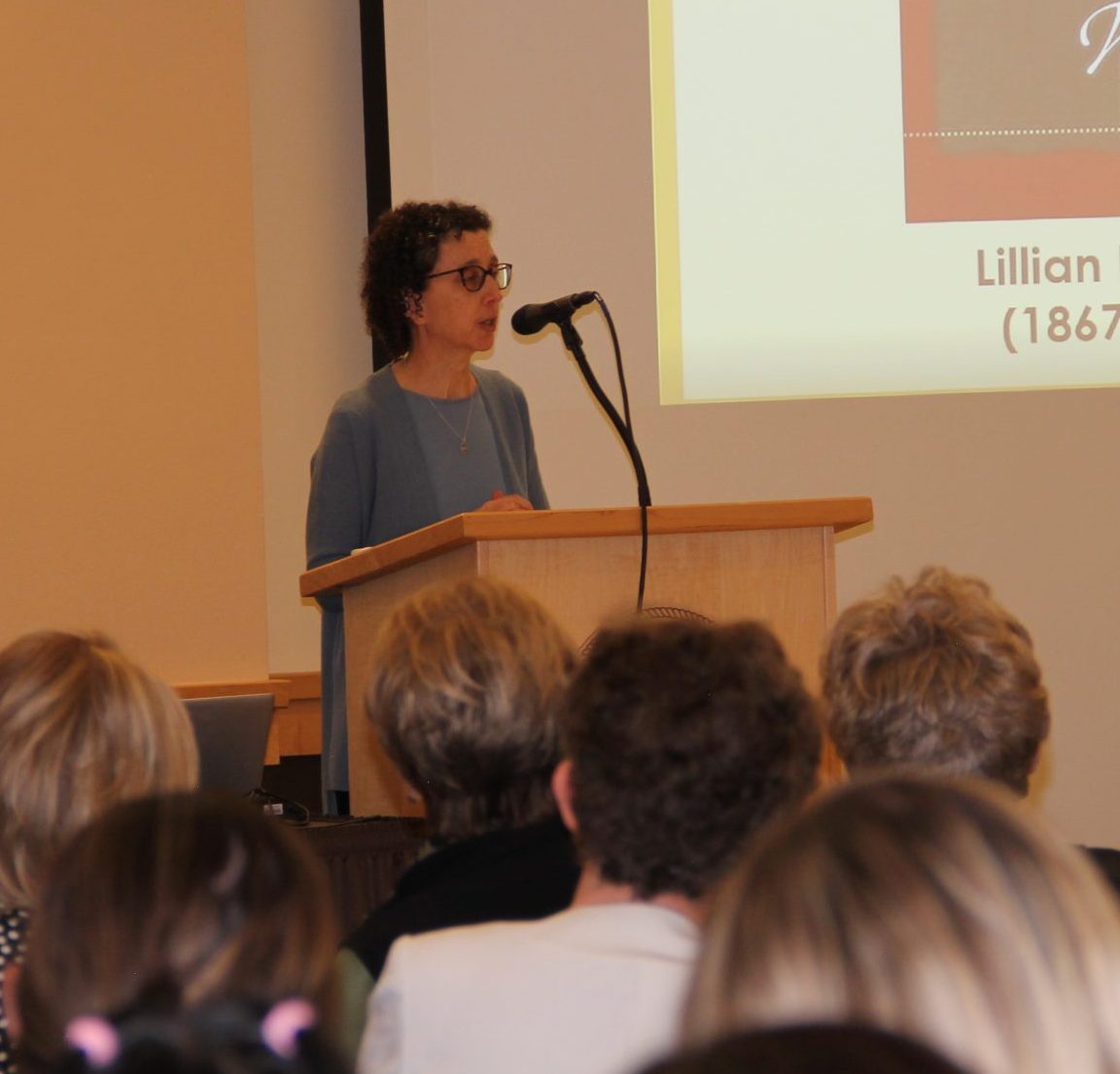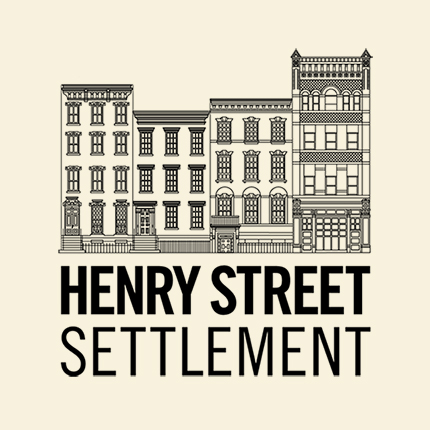Honoring a Lillian Wald Disciple in Wyoming
By Dr. Marjorie N. Feld and Dr. Ann Marie Hart

Marjorie Feld speaking at the University of Wyoming’s Fay Whitney School of Nursing’s Annual Research and Scholarship Day
As the author of a 2008 biography of Lillian Wald—founder of Henry Street Settlement—and a professor and program director in the field of nursing, we can say that we have both traveled with Wald for a long time and that it was Wald who brought us together.
In 2023, Ann Marie was seeking a way to honor Mary Burman, her dear friend and colleague at the University of Wyoming, Laramie, who had died of breast cancer. Mary, also a nursing professor, had been, like Lillian Wald, an innovative leader in both nursing and social work. And so it was that Ann Marie reached out to Wald’s biographer, Marjorie, to deliver a lecture on Wald at the university’s Fay Whitney School of Nursing’s Annual Research and Scholarship Day in April 2024—in loving memory of Mary.
The work and words of Henry Street Settlement’s founder, Wald, have encouraged people around the world, including future generations, and especially a young Mary Burman. As a graduate student in community health nursing at the University of Michigan in the late 1980s, Mary spent untold hours in the library learning about and being inspired by Lillian Wald and thinking about how to apply Wald’s lessons to Laramie and Albany County in southeast Wyoming, the rural community in which Mary was born and raised and to which she longed to return.
Before receiving her PhD in Michigan, Mary told her future husband that although PhD-prepared nurses were in high demand across the nation, she wanted to return to Wyoming. “‘I’m a rural community health nurse,’” she told him. “‘Think about a family on an isolated ranch 30 miles or so off the main road, barely accessible part of the year. They are self-sufficient and independent. They have to be. What happens when the matriarch…has a chronic illness? What happens to the business, and the family? To provide care, it is necessary to understand the connectedness of the family and their economics, respect their situation, their culture.’” Mary’s commitment to bettering the lives of people in Wyoming mirrored Wald’s dedication to the Lower East Side.
In 1999, keenly aware that many vulnerable populations had no access to health care, Mary and some of her colleagues, including Ann Marie, founded the Downtown Clinic, a free clinic in Laramie that serves multiple populations: undocumented immigrant workers, low-income people, and the families of international students who lack coverage in the United States. When we were together in Laramie in April 2024, we toured the Downtown Clinic and heard countless stories of Mary’s commitment to public health and health care equity. Marjorie joked that she might well be the only person ever to cross the threshold of Henry Street’s Lower East Side buildings and the Laramie Downtown Clinic. She assured Ann Marie and all who were there: the clinic had a Henry Street spirit of deep respect for its community.
In a 2015 interview, Mary described several people who had motivated and inspired her. Besides her mother, she said, “the person that’s probably inspired me the most is someone I never knew.” She spoke of her fascination with Wald and the lessons she learned from Wald’s unwillingness to ignore the atrocities she witnessed on the Lower East Side, her profound respect for all humanity, her long-term commitment to the individuals who inhabited her neighborhood, and her deep appreciation for the impact of community health on individual health and vice versa. Mary ended the discussion by saying, “Lillian Wald is truly my hero in health care. I’ve learned a lot from reading about her and reading about the work that she did over time and wish so much that I could have met her.”
Henry Street’s second executive director, Helen Hall, who succeeded Wald in 1933, noted that no one could fill Wald’s shoes, because she had been a “nurse, social worker, and social reformer all in one.” So too was Mary Burman. How fortunate that the influence of Wald and Burman lives on in their institutions, their colleagues, and in the work of people who value community and public health all over the world.
